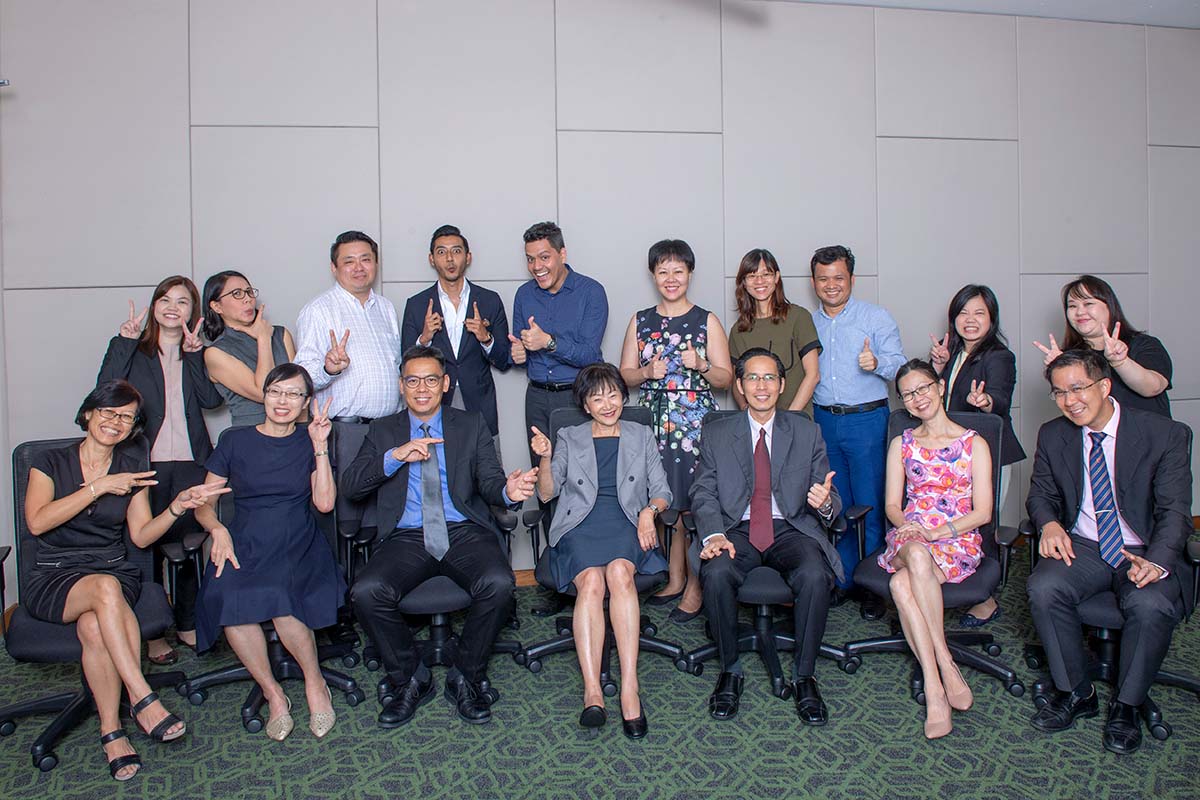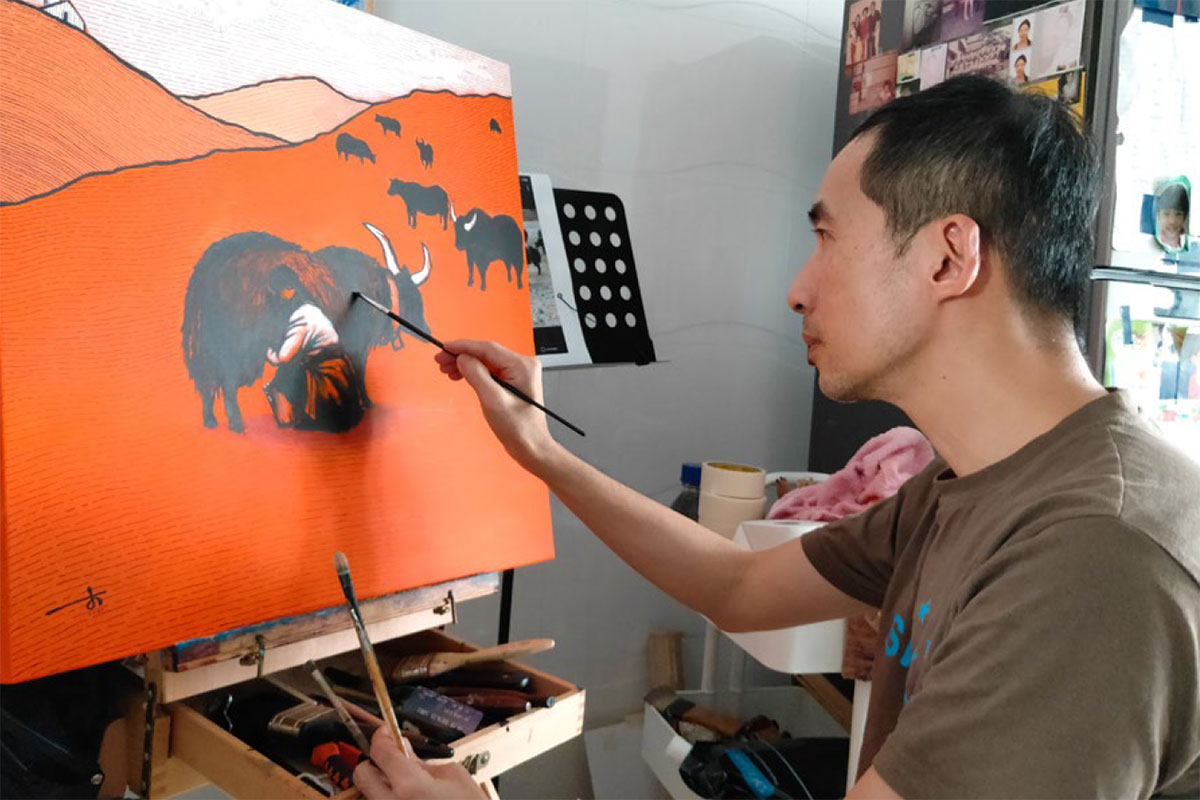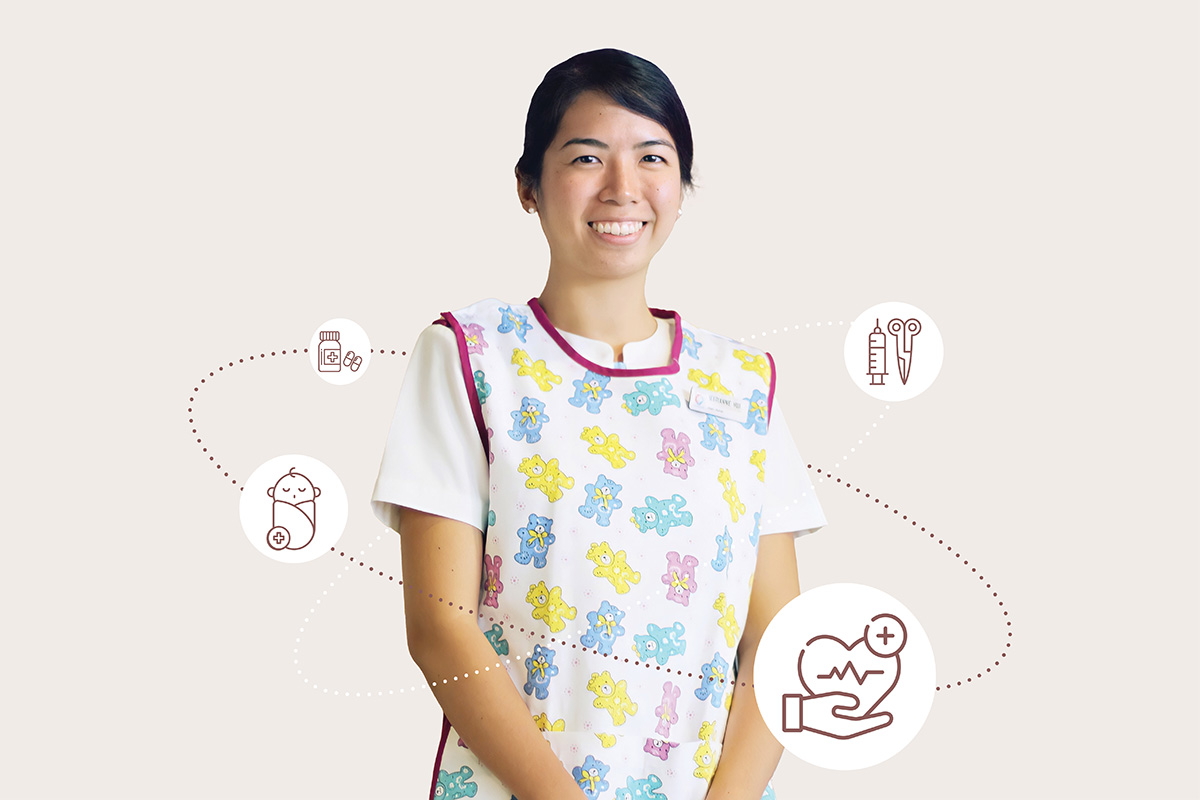
Issue 41 / February 2022
Insights
Why We Teach

The very first tenet of the Hippocratic Oath states: I will respect the hard-won scientific gains of those physicians in whose steps I walk, and gladly share such knowledge as is mine with those who are to follow.
oung doctors are uniquely positioned to teach and guide students, as they are able to draw upon their own recent experience in medical school. The Junior Doctor Teaching Award is presented in recognition of house officers, medical officers and residents who have shown excellence in their teaching of NUS medical undergraduates. Nominations come from a feedback form from the medical students under their tutelage. Award recipients are then selected with input from the Associate Deans and education leads of each hospital.
Some Junior Doctor Teaching Award winners share their thoughts.
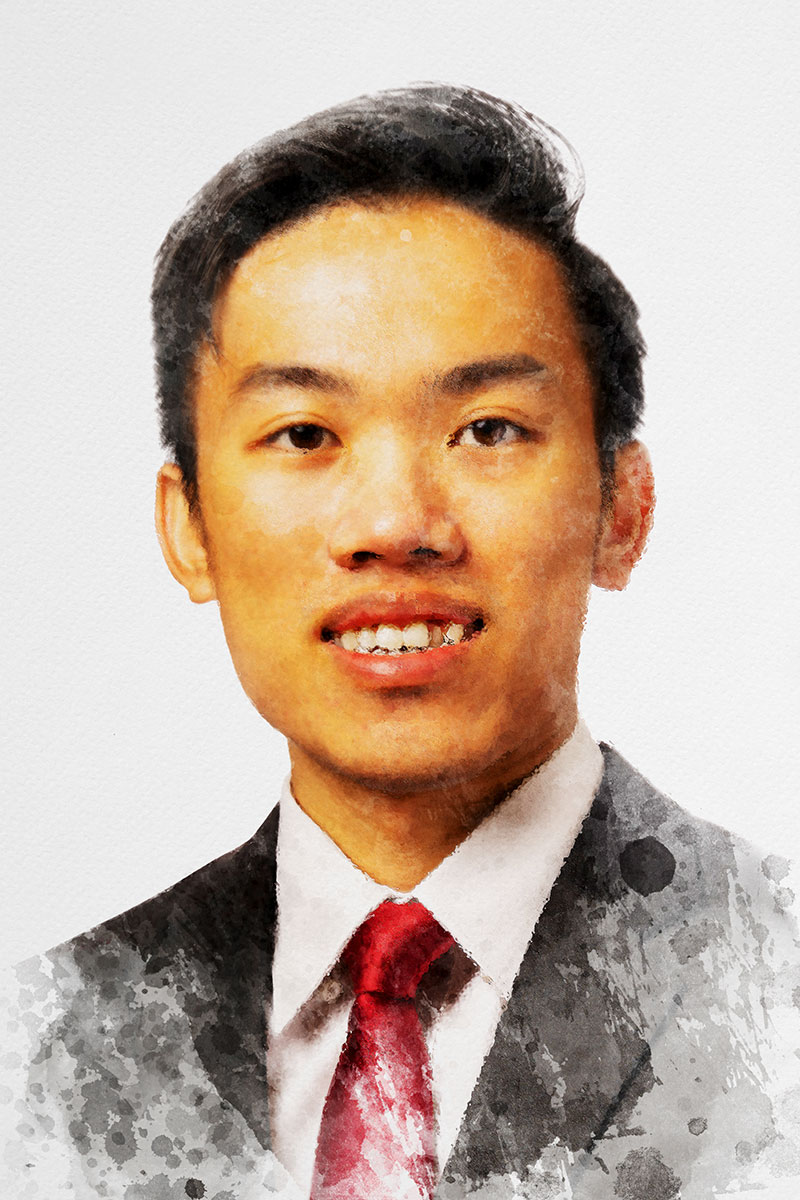
Dr Reudi Chan Jun Wen
Department of Anaesthesia, National University Hospital
“I see my peers and students paying it forward by helping their own friends and juniors. That is how I view what I do; teaching others as an act of gratitude for what my seniors and mentors have done for me.”
I always strive to follow the examples of the excellent mentors and clinicians who have taught me before. It’s not much of a ‘eureka’ moment, but I often find myself following the oft quoted saying “See one, do one, teach one”. Back in medical school, some of the best mentors were always the ones who taught very systematically—they succinctly re-emphasised first principles about the condition or procedure, then demonstrated a clinical example, before getting us to try applying the knowledge ourselves. As this had worked best for me as a learner, I apply the same framework where possible whenever I teach others.
I was pleasantly surprised to receive this award; hopefully this means I have made a positive impact for at least a few of my colleagues! But I would have to say, the most rewarding part would probably be when I see my peers and students paying it forward by helping their own friends and juniors. That is how I view what I do; teaching others as an act of gratitude for what my seniors and mentors have done for me.
I feel strongly for my peers and juniors (as well as other training healthcare professionals across all the disciplines and allied health services) whose clinical education this past year has been badly affected by the COVID-19 situation. I hope that we will continue to make headway with the necessary adaptations to facilitate living with COVID-19, and that there will be ample opportunities for them to catch up and hopefully have a very positive experience in their clinical learning journey!
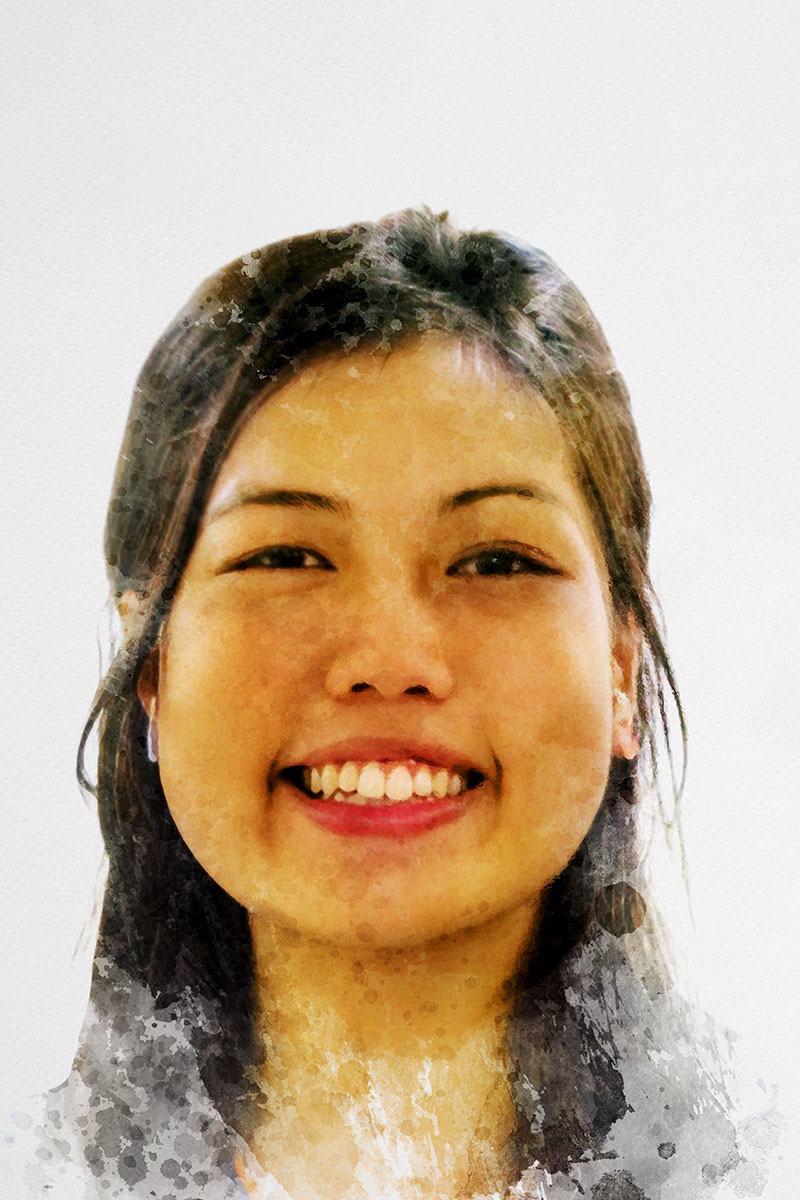
Dr Julia Ng Wei Yi
Department of Infectious Diseases, Tan Tock Seng Hospital
“Since those fond days as the teachers’ least liked student, I promised to teach whenever I could—hopeful that I could recognise those who learn outside the box too and support them in their journey.”
I truly was not a star student as a kid. I only got one positive comment in secondary school during a parent-teacher meeting. My mother told me she wept when she heard it, out of relief that there was someone else who didn’t think I was a terrible student, for every other review told her I was.
I was infinitely curious (and talkative) in a manner quite unsettling for a system geared towards a 40-children-per-class education system. I desperately wanted to learn, but I just could not do it in the usual way. And so, I struggled through the growing pains of learning unconventionally, and I succeeded purely by the empowerment of those who loved and believed in me.
Since those fond days as the teachers’ least liked student, I promised to teach whenever I could—hopeful that I could recognise those who learn outside the box too and support them in their journey. Then I joined clinicals, and realised I could be another kind of nuisance—now the silent kind—a space-occupying lesion in the tumult that is ward rounds.
No one forgets the awkwardness of being a medical student, shuffling around with your unused stethoscope and new scrubs—hoping desperately for someone to acknowledge you—but also wanting to die when the benevolent senior consultant gives their lengthy welcome speech while the junior doctors wait impatiently to get down to work.
As I struggled through being a House Officer at KK Women’s and Children’s Hospital’s Paediatrics department, COVID-19 restrictions lifted on medical students; and suddenly one day during morning rounds, they appeared.
In all honesty, my first response was dismay.
Then, I remembered the purest principle behind any kind of service, which is also well applicable to teaching—the quality of teaching is secondary to the willingness to do it. Thus, I started to teach whatever I could, and those days with them were some of the most enjoyable I had in the Paediatrics department.
Failure was and is my best teacher. I am grateful my academic struggles have allowed me to have insight into the sort of confusion a more cerebral person perhaps might not have anticipated.
As a junior, you feel that there is very little you can bring to the table, until someone reminds you that what you do have is potential—that what you are going through now, these growing pains, are to be expected.
I hope I never stop reminding my juniors of that. I hope they know that by letting me teach them they are helping me to grow. I hope that if you are reading this, and we cross paths someday, that you will stop to say hello—so we can struggle together in our desire to be better, for each other and for our patients.
Stay safe everyone, and thank you very much to all who nominated me for this award.
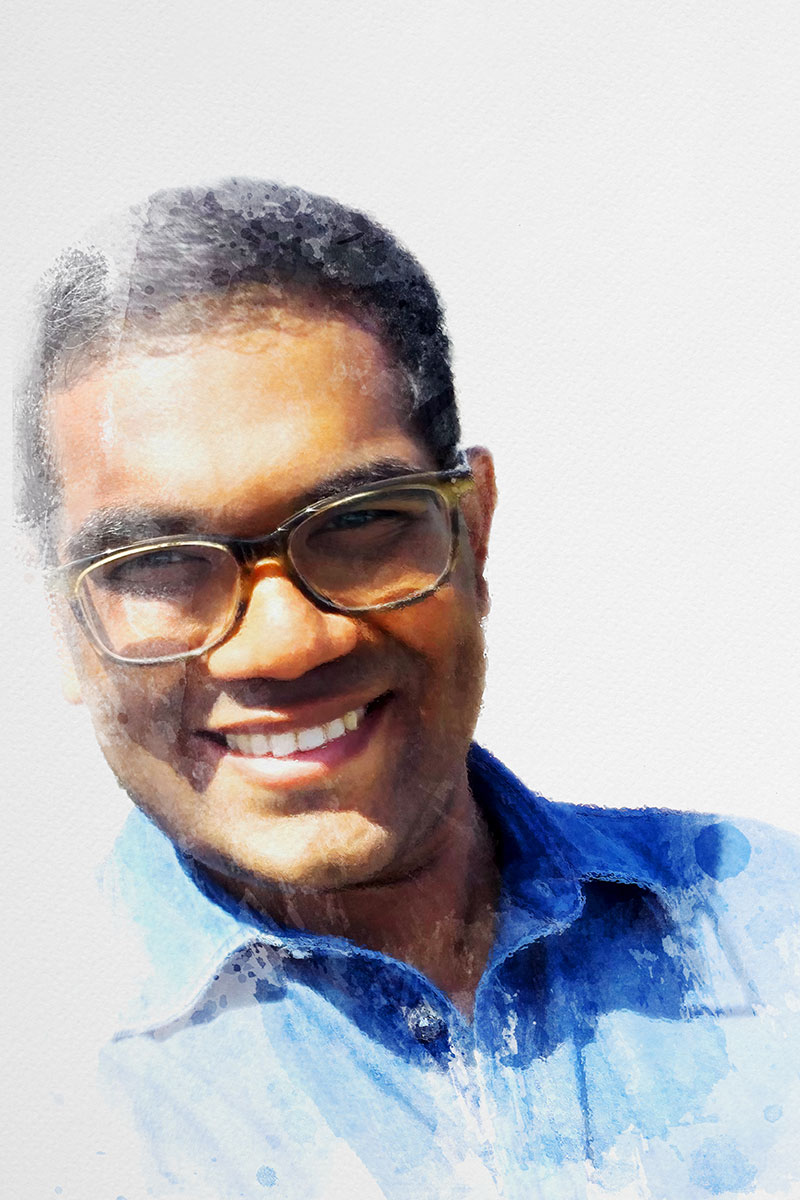
Dr Pradip Dashraath
Division of Maternal-Fetal Medicine, Department of Obstetrics and Gynecology, National University Hospital
“I have never forgotten what it was like being a student. So, while deep knowledge and understanding of my subject are critical, acknowledging the anxieties students experience is equally important to me as an educator.”
I am writing this in between performing a caesarean delivery and crafting questions for an upcoming undergraduate atlas of obstetrics and gynaecology—a personal labour of love that’s kept me occupied for the past year. This is the first time I’ve been asked to reflect on my teaching experiences as a clinician. Truthfully, I never saw the need to celebrate my contributions to undergraduate education (as the Dean’s Office can attest to—I’ve not attended the award ceremonies in the past eight years!).
Teaching others has always come easily to me—not that it is a simple task or that I believe I am skilled at it, but because it gives me life. For six months, I was a relief teacher to a class of 10-year-olds in the interim between completing national service and the start of my undergraduate medical studies. In the latter half of my undergraduate years, I guided my juniors through their clinical skills and for six years as an obstetrics and gynaecology resident, I taught every batch of Phase IV students who rotated through my department.
Staying back post-call or sacrificing my weekends to teach has never bothered me. Because through it all, I have never forgotten what it was like being a student. So, while deep knowledge and understanding of my subject are critical, acknowledging the anxieties students experience is equally important to me as an educator.
Every student who has come my way has also allowed me to be a better doctor to my patients. I can parse diagnoses and management plans into forms that are easily understood by the layperson—because I have now had years of practice tearing down complex concepts and communicating them simply when I teach. I firmly believe that knowledge empowers: it provides stability and calm amidst the humdrum and treachery of daily living. To provide my students and patients with that confidence is an honour.
As Professor Chew Chin Hin, former Deputy Director of Medical Services, once said, “A doctor never stops learning and never stops teaching the next generation.” I will continue until the end. I have never given up on my students, and I hope they never give up on themselves.

